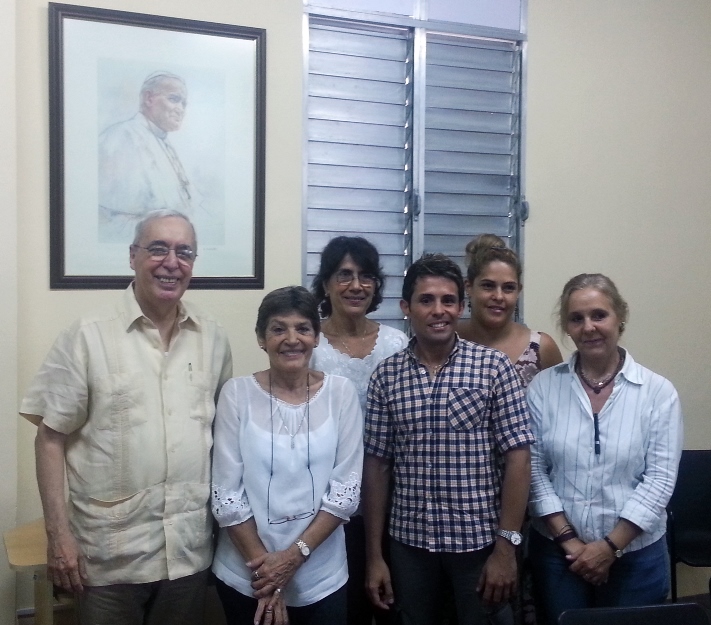|
Bioethics center in Cuba flies below radar in imparting Christian values
Friday, December 4, 2015
"We do not base our arguments on the catechism of the Catholic Church, but solely on reason."
By Oliver Maksan
HAVANA, Cuba—Professor Rene Zamora Marin is a Cuban pioneer
of faith. The medical doctor used to run an intensive care unit at Havana’s
largest hospital. In 1997 he founded the “John Paul II Center for Bioethics” in
the Cuban capital and that’s where he spends most of his time today.
“The time my employees and I spend at the institute is time we would
have devoted to sleep. But the work is worth it,” he told international
Catholic charity Aid to the Church in Need. The center has 14 employees.
“Our
work areas naturally include the narrower bioethical issues such as stem cell
research or brain death. However, we have since expanded our focus.
Furthermore, an ethical problem like abortion cannot be considered in
isolation. Abortion is always also a symptom of crisis in the family,” Dr.
Marin said.
Imparting implicitly Christian values is at the heart of institute’s mission—raising
awareness of human dignity among young people and adults, who are targeted by a
series of programs and seminars. The doctor called attention to the benefits of
“the true interaction with each other that arises from this.”

His goal is to influence Cuban society. Dr. Marin explained: “We are
having a crisis of values in Cuba. This is true for the family, but also for
society as a whole. For this reason we address all people of good will. In
doing so, we do not base our arguments on the catechism of the Catholic Church,
but solely on reason.
"After all, every thinking person can understand the
concept of a person and his or her dignity. Reason unites us all. It made it
possible for the Apostle Paul to speak about an unknown God on the Areopagus in
Athens.”
The institute
publishes a magazine. This channel of communication as well as the courses
offered to the public and a working relationship with the Department of
Philosophy at the University of Havana all make it possible to come into
contact with Cubans who do not go to Mass on Sundays. According to Dr. Marin,
many people come to the center with philosophical questions, to gather
information, to exchange ideas and to expand their intellectual horizons.
“Our
work is highly respected. We have now even been made a member of the Academy of
Sciences of Cuba. Our center was also involved in a bill on brain death. This
makes us very grateful,” the doctor said.
Dr. Marin and staff at the John Paul II Center for Bioethics; ACN photo
|